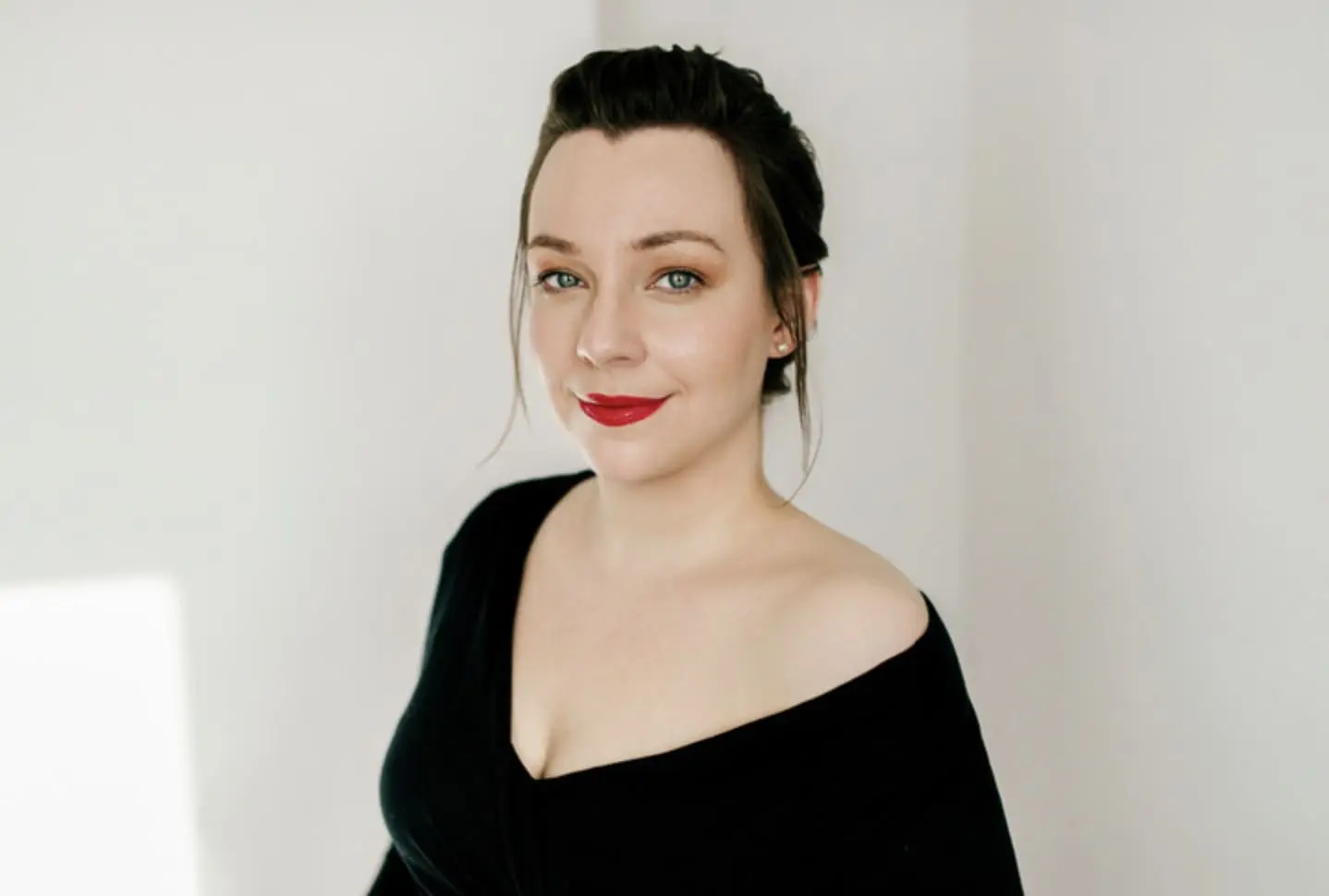Canadian mezzo soprano Marta Herman takes us to Lucerne, Switzerland where she is performing the role of Anastasio in Luzerner Theater‘s production of Vivaldi’s Il Guistino, running May 2 to June 20 (info and tickets here).
Marta has had great success abroad with notable highlights as a house soloist with Staatstheater Kassel in the following roles: Polina in Pique Dame, Suzuki in Madama Butterfly, Bradamante in Alcina, Erste Norn in Götterdämmerung, Floßhilde in Das Rheingold, Grimgerde in Die Walküre, Hänsel in Hänsel und Gretel, Brigitta in Die tote Stadt, Cherubino in Le nozze di Figaro, and Dritte Dame in Die Zauberflöte. Other operatic engagements include performing Linetta in Haydn’s Il mondo della luna with Landestheater Salzburg , Bradamante in Alcina at the Pfalztheater Kaiserslautern, Dritte Dame in Die Zauberflöte at Staatstheater Braunschweig, and Zweite Dame in Die Zauberflöte, Third Nymph in Rusalka, and multiple roles in Martinu‘s Julietta with Oper Frankfurt. Upcoming, Marta will be performing Schwertleite in Die Walküre and Erste Norn in Die Götterdämmerung with Theater Basel.
During her downtime, Marta shared with us what it has been like to stay in Luzern, including her favourite place to grab a coffee, the best way to explore the natural beauty in the city, and which museums she has been touring. Read on to find out more.
Luzern.
How long are you working on contract?
It’s a very Swiss Spring for me; I’m here in Luzern for two months, then back and forth between here and Basel, where I’m in a new Ring cycle, until the end of June.
What’s the opera house like?
The house has the distinction of always having been a public theatre; it was founded by the city of Luzern in the 19th century, and doesn’t have its roots in a court theatre, like many historic European theatres. The theatre still has its original 19th century white neo-classical exterior, but the auditorium is modern, all black and red. The acoustic is great, so we have ultimate freedom which is perfect for the Vivaldi opera I’m singing here. And there must be something in the water – everyone in Luzern is so friendly!
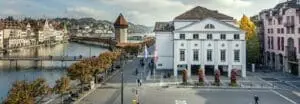
Photo Credit: Arnold Daniel
Where is the most peaceful place in the city?
The theatre has a terrace on the top floor which gives a beautiful view of the whole city, the famous covered bridges, the lake, the mountains. We often bring our lunch up there, but the view is also beautiful by night.
Best coffee or tea?
Cafe Tacuba, which does an excellent hand filter coffee with beans from their own roastery.
Coolest bar or restaurant you’ve been to?
Cafe Chapeau, which is a modern french bistro-style place in a lovely 19th century milliners shop, tucked away in a quiet square in the old town near the theatre, for coffee and brunch during the day, or a glass of wine in the evening.
An activity you have done that is unique to the area?
The combination of alpine lakes and mountains is what makes this area so special, and a beautiful way to spend the day is to travel by boat to nearby Vitznau, a sweet little village which is the starting point for the train that takes you all the way up to the top of Mount Rigi. Not a cable car, a real train that goes up the mountainside!
Sieh dir diesen Beitrag auf Instagram an
Is there something unexpected that happens locally that you discovered?
I speak German, and I’ve spent time working in Basel before, which is only an hour away, and had got somewhat used to the Swiss german accent there – I did not expect the accent here in Luzern to be so very different, and so much harder to understand!
How did you find your accommodation?
The theatre provides the guests here with our accommodation, which is great because Luzern is beloved by tourists and it can be tricky to find.
What’s the most important thing you think of when it comes to finding accommodation as a singer?
A good connection to the rehearsal space is key, because theatres in Germany, Switzerland and Austria tend to have two rehearsal blocks daily, morning and evening, with the afternoon free, so one often goes back and forth twice a day. And in these small guest flats, a decent kitchen is not a given – if there’s an oven, I’m in heaven.
Have you had a chance to explore some galleries or museums?
This is always one of my favourite things to do, and Luzern does not disappoint – my two favourites so far are the Museum Rosengart which has incredible collections of Picasso and Klee, and many impressionists, and the Wagner museum, which is housed in his summer villa overlooking Lake Luzern..
Is there anything you recommend beyond what we’ve asked here?
The city wraps around Lake Luzern, and I’ve found a few secret spots to sit with a book and enjoy the incredible view of the mountains. The views change with the weather; bluest skies and clear sunlight view of the whole mountain range one day, wooly fog and blankets of snow the next. I never get tired of it.
LEARN MORE ABOUT MARTA HERMAN
VISIT HER WEBSITE
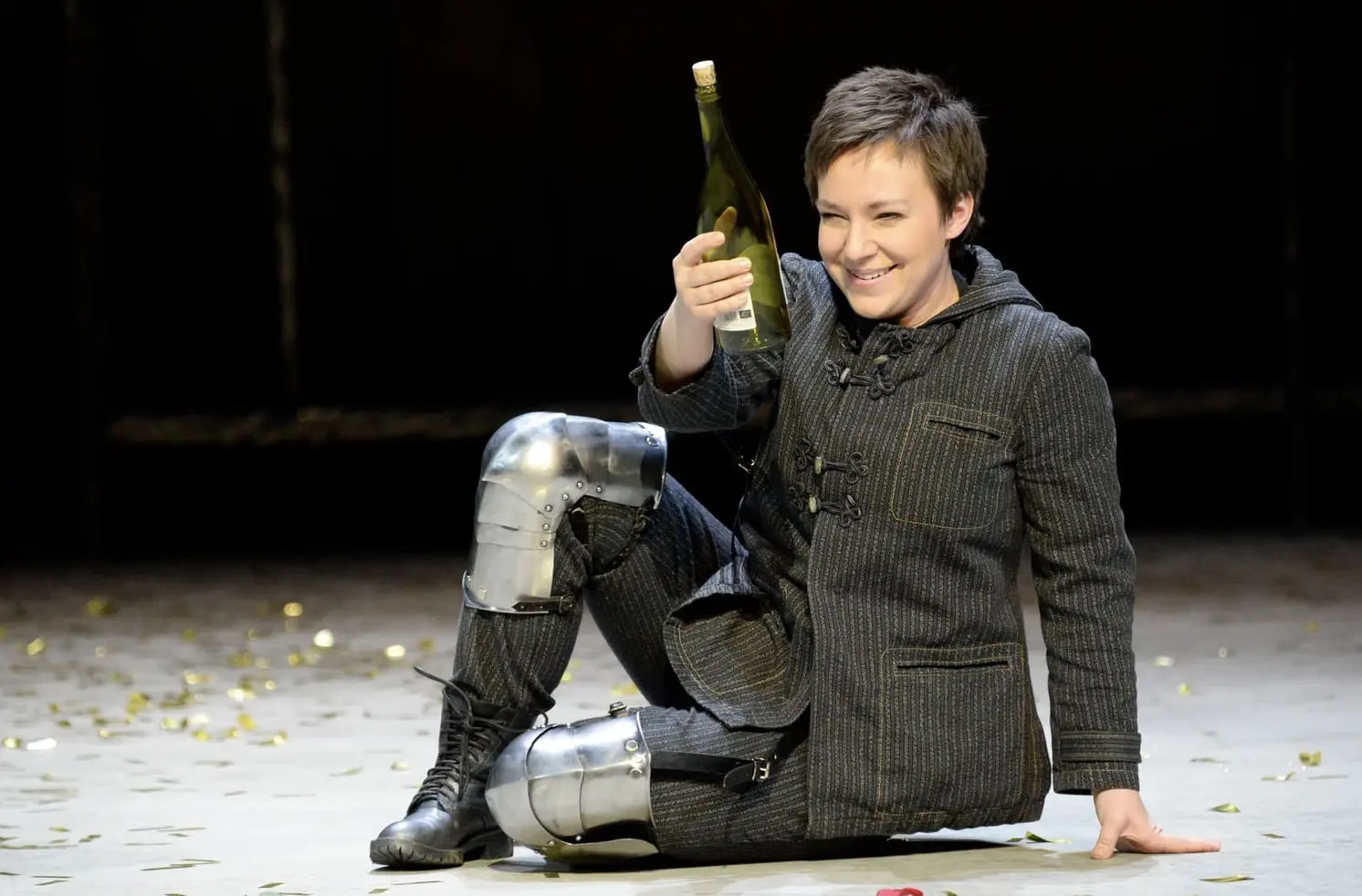
© Curtesy of Marta Herman
Stéphano
Roméo et Juliette at Staatstheater Kassel
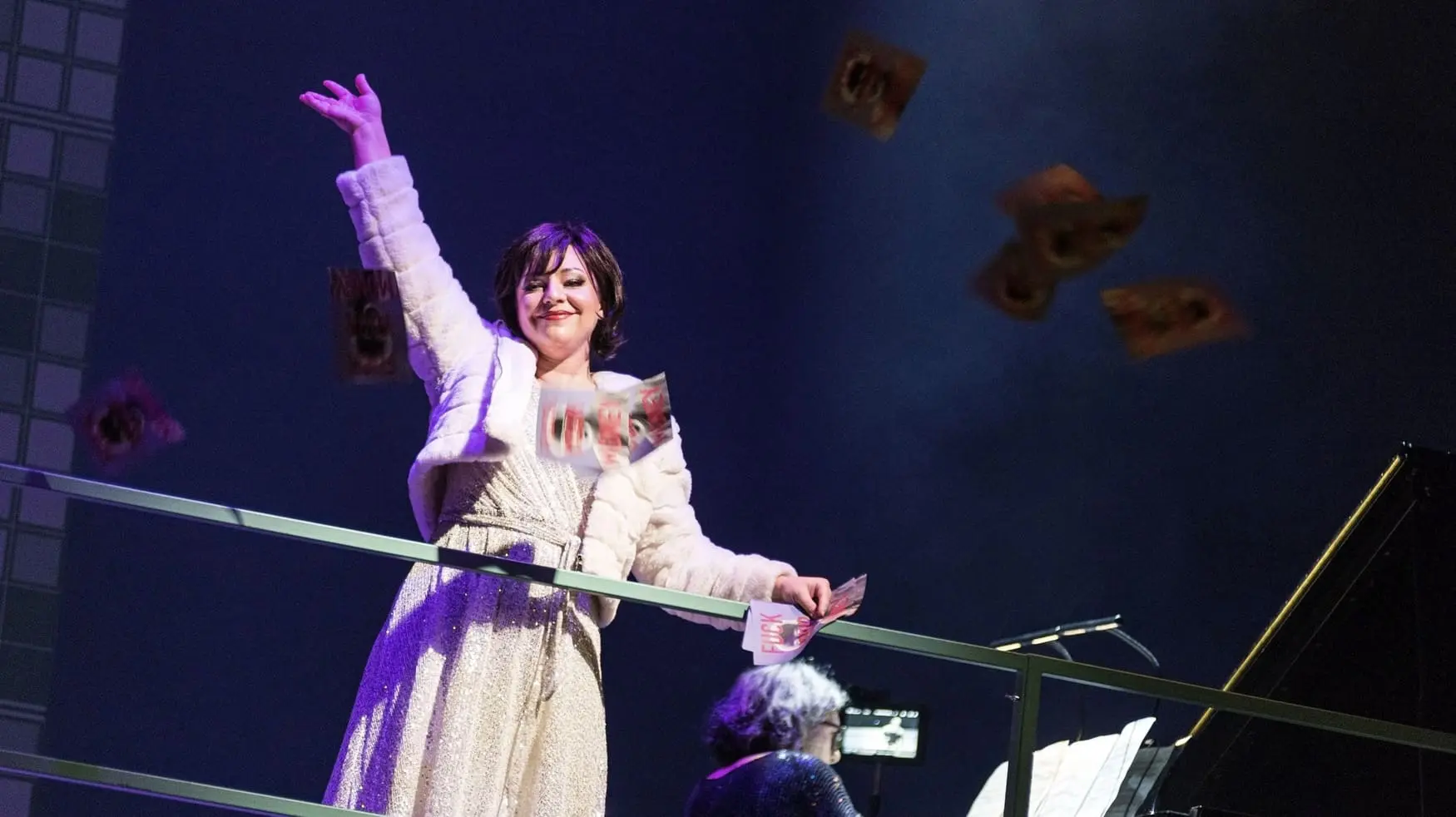
©Curtesy of Marta Herman
Polina
Pique Dame at Staatstheater Kassel
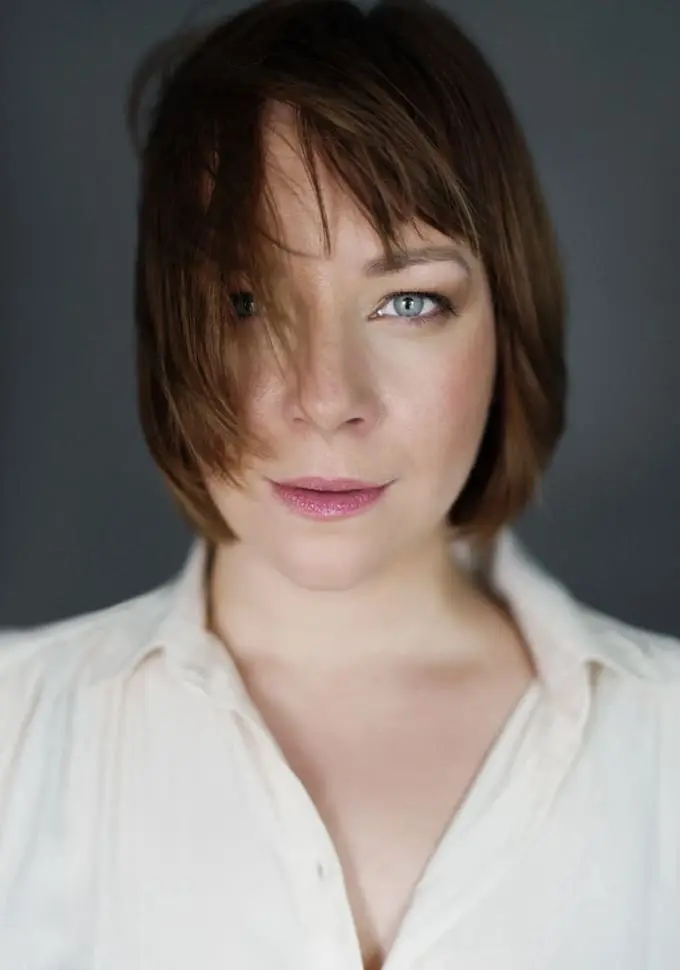
© Pure Studios
Giustino
Luzerner Theater
May 2 – June 20
CONDUCTOR & HARPISCORD: Jörg Halubek
DIRECTOR: Markus Dietz
STAGE: Ines Nadler
LIGHT DESIGNER: Ivo Schnider
COSTUME DESIGNER: Mayke Hegger
CHOREOGRAPHER: Phoebe Jewitt
DRAMATURGY: Johanna Mangold
MUSICAL ASSISTANCE AND HARPISCHORD: Giulio de Nardo
GUISTINO: Marcela Rahal
ARIANNA: Eyrún Unnarsdottir
ANASTASIO: Martha Herman
LEOCASTA: Tania Lorenzo Castro
AMANZIO: Solenn’ Lavanant Left
VITALIANO: Younggi Moses Thu
ANDRONICO: Josy Santos
POLIDARTE (RECORDING VOCALS): Sascha Emanuel Kramer
POLIDARTE FORTUNA: Lucerne Theater Statistry
It is an overwhelming panopticon of baroque emotional worlds that Antonio Vivaldi presents to the audience in his opera “Giustino” from 1724. The drama per musica, which is based on pseudo-historical facts of Roman imperial history, is about love, bravery and courage. But also about intrigue, lust for power, war, revenge and violent fantasies. At times the story veers into the fantastical – a bear attacks, a sea monster appears – and as is so often the case in baroque opera seria, the plot is not necessarily logical. Rather, it is about the drastic highlighting of affects and their expression in music. The fact that Vivaldi masters this masterly is shown by his enormous range of instrumental means in the arias that we hear.
The central theme of the opera is the vaguely historically documented career of the simple farmer Justin, who dreams of a glorious life at court. In fact, his wish is granted by the goddess Fortuna and Justin climbs steeply up the career ladder until he ultimately becomes Emperor Justinian I. However, the way there is not easy: When he comes to the imperial court, intrigue and falsehood reign. He has to go on adventures and is slandered – but ultimately truth and reason win.
Opera Canada depends on the generous contributions of its supporters to bring readers outstanding, in-depth coverage of opera in Canada and beyond.
Please consider subscribing or donating today.

